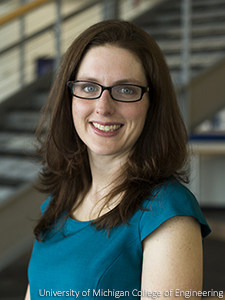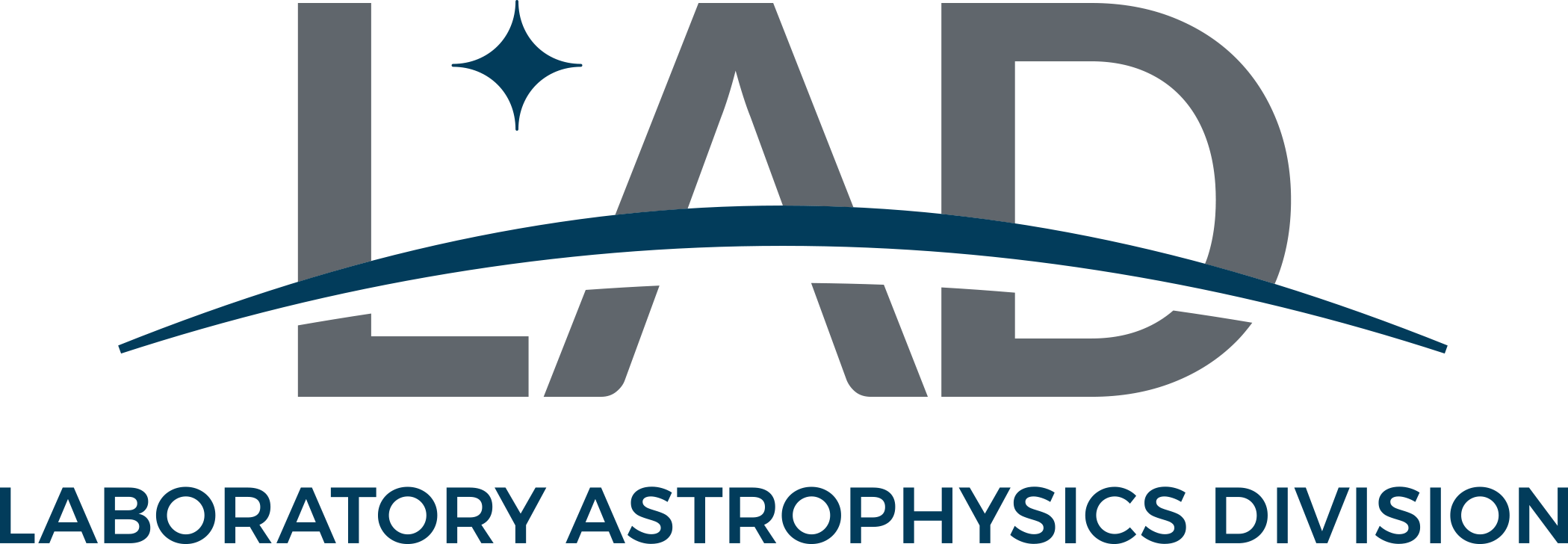You are here
2017 Early Career Award
2017 LAD Early Career Award Goes to Carolyn Kuranz
 The 2017 Early Career Award, given to an individual who has made significant contributions to laboratory astrophysics within 10 years of receiving a PhD, goes to Carolyn Kuranz (University of Michigan) for seminal laboratory experiments in hydrodynamic and radiation processes relevant to astrophysical dynamics.
The 2017 Early Career Award, given to an individual who has made significant contributions to laboratory astrophysics within 10 years of receiving a PhD, goes to Carolyn Kuranz (University of Michigan) for seminal laboratory experiments in hydrodynamic and radiation processes relevant to astrophysical dynamics.
Kuranz uses high-energy-density plasma environments to study phenomena occurring in space, such as shock waves and magnetized jets. She was the experimental lead scientist for the Center for Radiative Shock Hydrodynamics at the University of Michigan and has utilized the Omega Laser Facility at the University of Rochester and the National Ignition Facility in California. She is the principal investigator on one of the first two experimental campaigns to explore discovery science with the latter facility.
Kuranz received her PhD in applied physics from the University of Michigan, where she is now an associate research scientist. She is a member of the Executive Committee of the Division of Plasma Physics in the American Physical Society and is the founding chair of the Jupiter Laser Facility User Group at the Lawrence Livermore National Laboratory. She is actively involved with recruiting and training students in studies of high-energy-density plasmas.
The LAD Early Career Award includes a cash award, a framed certificate, and an invited lecture by the recipient at a meeting of the Laboratory Astrophysics Division.
Contacts:
Farid Salama
LAD Chair
NASA Ames Research Center, California
+1 (650) 604-3384
ladchair@aas.org
Steven Federman
LAD Past-Chair
University of Toledo, Ohio
+1 (419) 530-2652
ladpastchair@aas.org
Daniel Wolf Savin
LAD Secretary
Columbia University, New York
+1 (212) 854-4124
ladsec@aas.org
Carolyn Kuranz
University of Michigan
+1 (734) 615-6282
ckuranz@umich.edu
The AAS Laboratory Astrophysics Division (LAD, https://lad.aas.org) advances our understanding of the universe through the promotion of fundamental theoretical and experimental research into the underlying processes that drive the cosmos.
The American Astronomical Society (AAS, https://aas.org), established in 1899 and based in Washington, DC, is the major organization of professional astronomers in North America. The mission of the AAS is to enhance and share humanity's scientific understanding of the universe.
